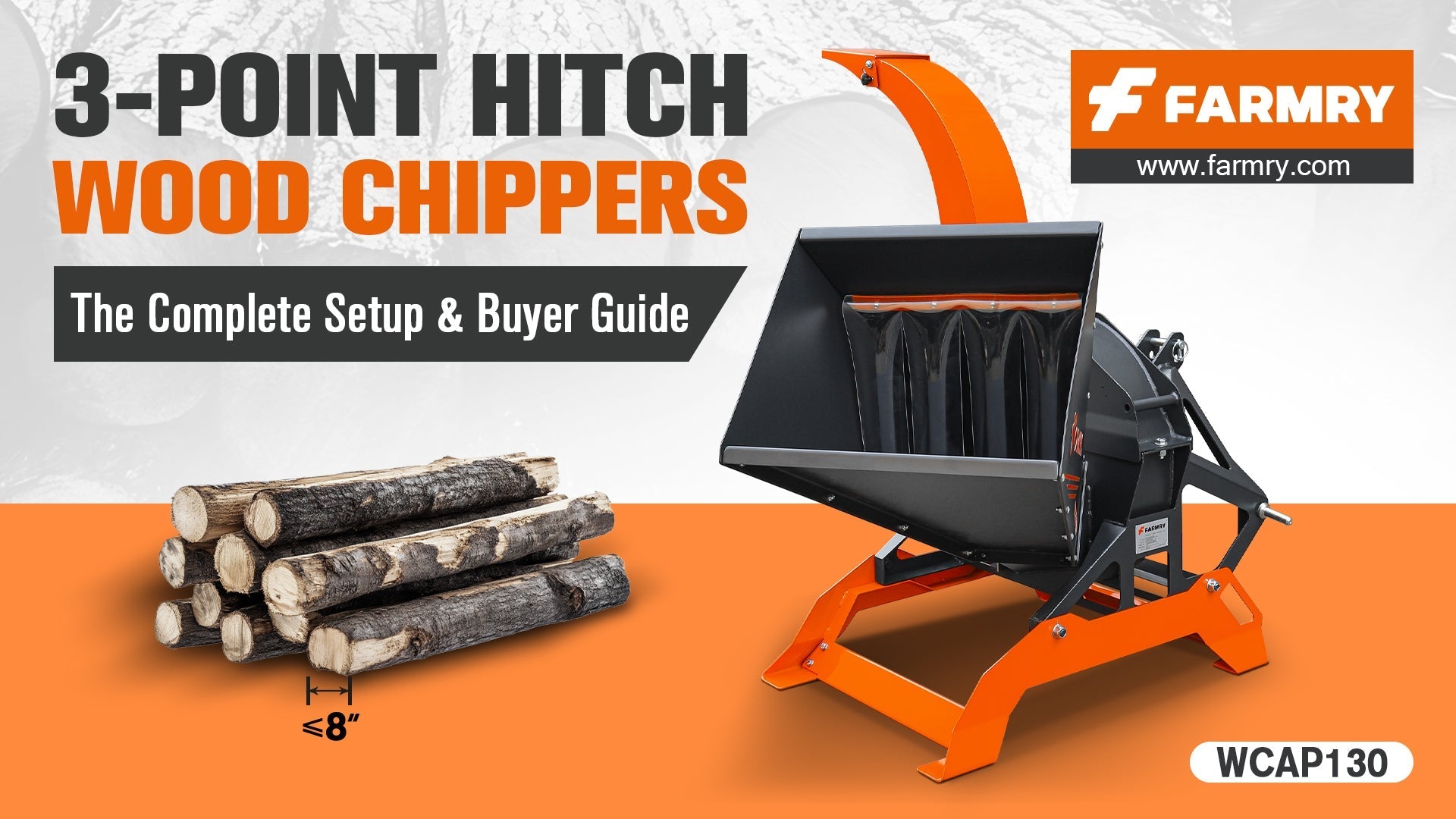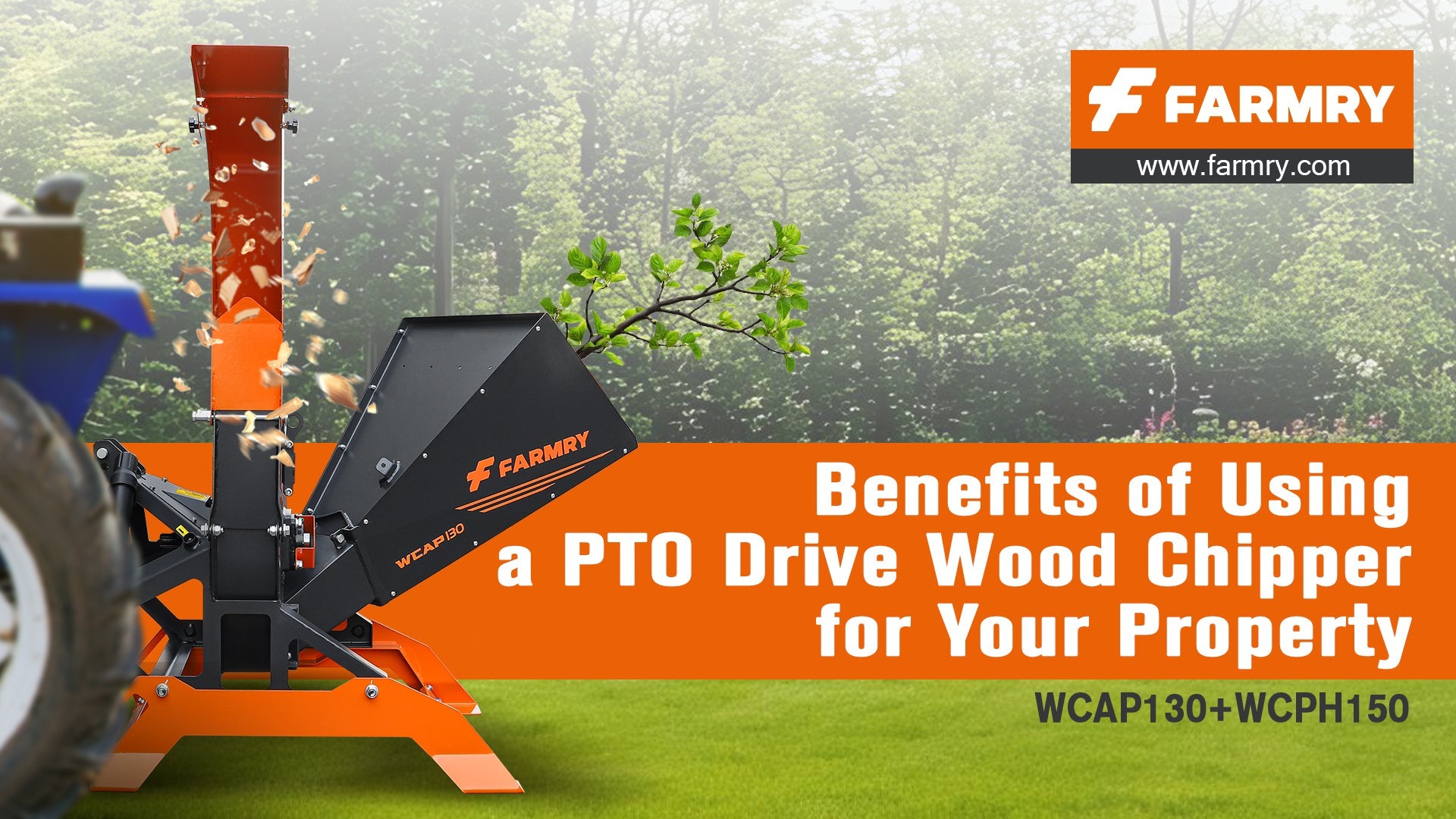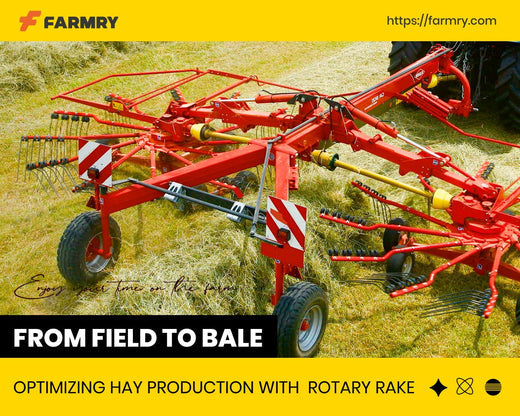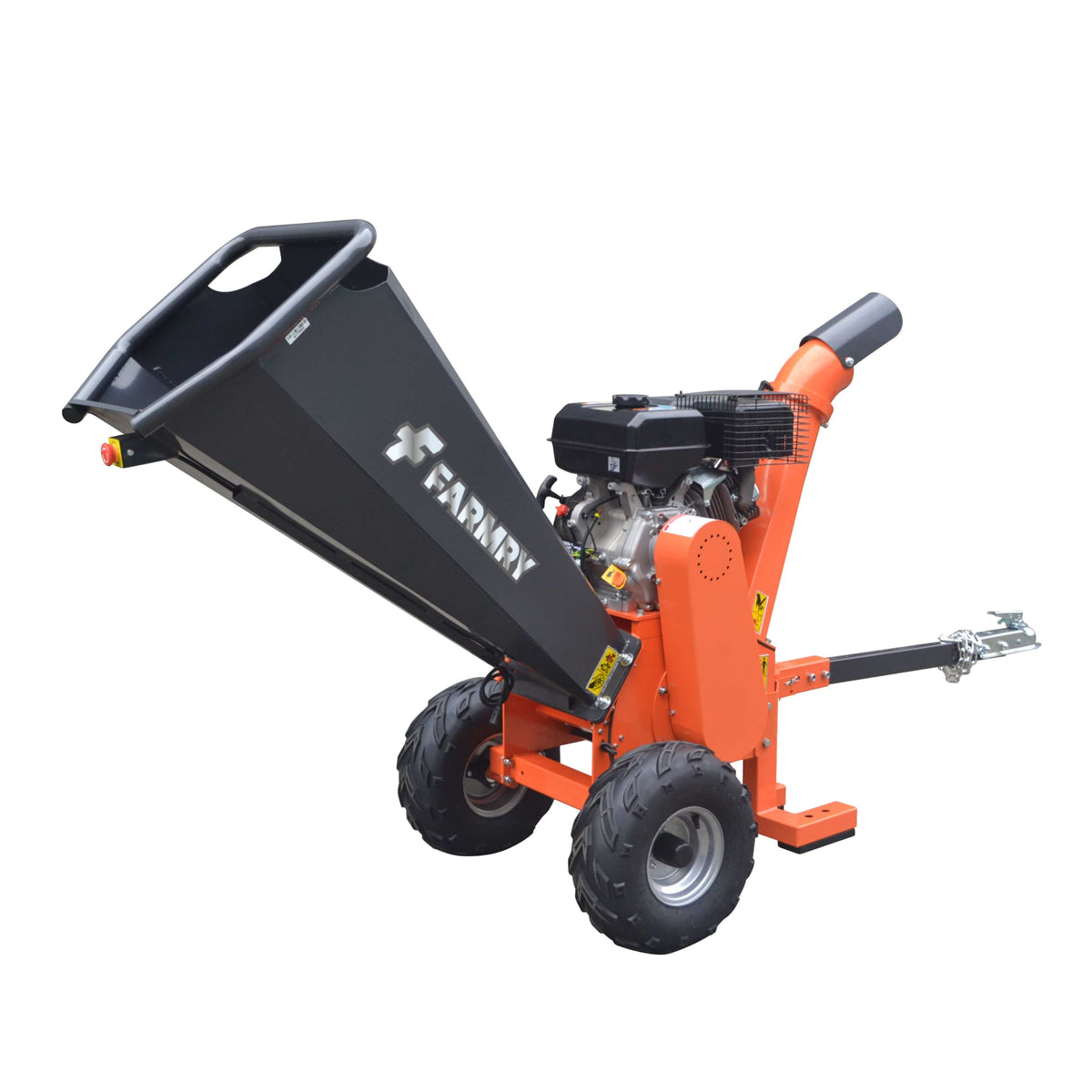The Complete Setup & Buyer’s Guide for Choosing the Best Wood Chipper for Home Use
 The Complete Setup & Buyer’s Guide for Choosing the Best Wood Chipper for Home Use
The Complete Setup & Buyer’s Guide for Choosing the Best Wood Chipper for Home Use
When it comes to maintaining a well-manicured yard or garden, a wood chipper for home use is one of the best investments you can make. Whether you're dealing with fallen branches, small twigs, or thick branches, a wood chipper can help you quickly process these materials into useful wood chips, mulch, or compost. In this comprehensive guide, we will explore everything you need to know about choosing the best chipper shredder, including both electric models and gas models, to suit your needs.
Understanding Wood Chippers and Chipper Shredders
A wood chipper is a powerful tool designed to shred and chip woody materials into smaller pieces. While these machines can be highly efficient for homeowners, landscapers, and gardeners, it’s essential to understand the differences between a wood chipper and a chipper shredder.
-
Wood Chipper: This machine is specifically designed to chip branches and logs into wood chips. Typically, wood chippers use a powerful blade or a set of rotating blades to break down larger pieces of wood. Wood chippers can be used for thick branches and large branches, but they may not always be the best choice for smaller materials like leaves or twigs.
-
Chipper Shredder: A chipper shredder is a more versatile tool that combines both chipping and shredding functions. It not only chips larger materials like fallen branches but also shreds smaller items like small branches, twigs, and even leaves. If you have a variety of yard waste, a chipper shredder is likely the more efficient option for you.
In this guide, we’ll review the best chipper shredders available for home use, including electric chipper shredders and gas models, and help you determine which one suits your garden needs.
The Best Wood Chipper for Home Use
1. Electric Chipper Shredders vs. Gas Models
When it comes to choosing between electric chipper shredders and gas models, your decision will primarily depend on the size of your yard, the type of materials you need to process, and how much power you need.
-
Electric Models:
-
Quiet operation: Electric chipper shredders are much quieter than their gas-powered counterparts, making them ideal for smaller yards or urban gardens where noise might be a concern.
-
Ease of use: With electric models, you won’t need to worry about mixing gas or maintaining an engine. Just plug it into an outlet, and you're ready to start chipping and shredding.
-
Low maintenance: Since electric models don’t require fuel or engine oil, maintenance is minimal.
-
Ideal for smaller yards: Electric models are perfect for homeowners with smaller yards or those who only need to process smaller materials like small twigs, small branches, or dry materials.
-
-
Gas Models:
-
Heavy-duty performance: Gas-powered wood chippers offer much more power and can handle thick branches and large amounts of yard waste.
-
More efficient: Gas models typically have a higher reduction ratio, meaning they can process large volumes of materials quickly, making them perfect for larger yards or properties with significant amounts of yard waste.
-
Portable: Gas models don’t require an outlet, so they can be used anywhere, giving you more access and flexibility when working on large properties or remote locations.
-
Louder operation: One downside to gas models is that they are typically louder and may require hearing protection during use.
-
2. Key Features to Look for in a Wood Chipper for Home Use
When buying a wood chipper for home use, it’s essential to consider several key features that will make your experience safer and more efficient. Here are the top features to keep in mind:
-
Safety Features: Safety is paramount when using a chipper or shredder. Look for machines with features like a push stick, safety chute, and automatic shut-off mechanisms to prevent accidents while operating. It’s also a good idea to choose a machine with large wheels for easier mobility.
-
Feeding Material: A chipper shredder's feeding system determines how easily you can feed materials into the machine. Make sure the chute is large enough to handle the types of materials you'll be working with, such as branches, twigs, and small branches. For thicker materials, look for a machine with a larger diameter chute to accommodate larger pieces of wood.
-
Reduction Ratio: The reduction ratio refers to the size reduction the machine can achieve when processing material. A higher reduction ratio means the machine will turn larger materials into finer mulch or wood chips more effectively. This is especially important for homeowners who want to turn their yard waste into fine mulch for their garden beds or compost pile.
-
Collection Bag: Many wood chippers come with a collection bag or bin to collect the shredded material. A high-quality bag can make disposal easier, helping you avoid the mess of piles of shredded material scattered around your yard.
-
Blades and Power: The blades of the chipper are one of the most critical components. High-quality blades will make the machine more efficient, allowing it to process thick branches, small twigs, and other materials without jamming. Also, ensure that the chipper has enough power (measured in horsepower or amps) to handle the materials you plan to shred.
-
Assembly and Mobility: A good wood chipper should be easy to assemble and operate. Machines with mobile designs, large wheels, and convenient handles can be transported easily around your yard or garden. If you need to move the chipper often, consider a lightweight model or one with a vacuum function for easier maneuverability.
3. Choosing the Right Wood Chipper for Your Yard Size
The size of your yard and the amount of yard waste you have will play a significant role in your decision. If you have a small yard with occasional small branches and twigs, an electric chipper shredder might be your best option. For larger properties or those with substantial yard waste, a gas chipper shredder with a higher power rating and a larger reduction ratio will be more efficient.
For Smaller Yards:
-
Electric chipper shredders are compact, quieter, and ideal for processing smaller branches and fallen branches.
-
Look for a chipper with a collection bag and a smaller reduction ratio for easy mulch creation.
For Larger Yards:
-
Gas-powered chipper shredders can handle thicker branches and larger volumes of material.
-
Choose a model with heavy-duty capabilities, large wheels, and higher power to process materials more efficiently.
4. Maintenance and Care for Your Wood Chipper
Proper maintenance is crucial for the longevity and performance of your wood chipper. Regularly inspect the blades for wear and tear, and replace them as necessary. Keep the machine clean by removing any debris that could cause a jam, and always store it in a dry place to prevent rust.
Conclusion
Whether you choose an electric chipper shredder for its quiet operation and ease of use or a gas-powered chipper for its heavy-duty power, finding the right wood chipper for home use is crucial to maintaining your yard and garden. Keep in mind the size of your yard, the types of materials you'll be processing, and your preferences regarding maintenance and mobility. With the right machine, you can efficiently turn your yard waste into valuable mulch or wood chips, reducing waste and improving your garden's health. Happy chipping!







